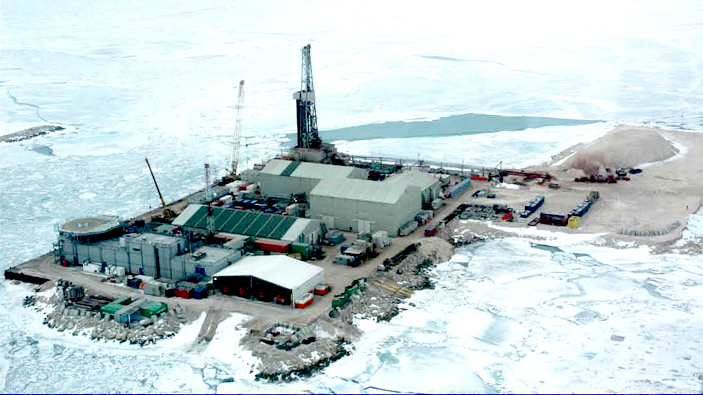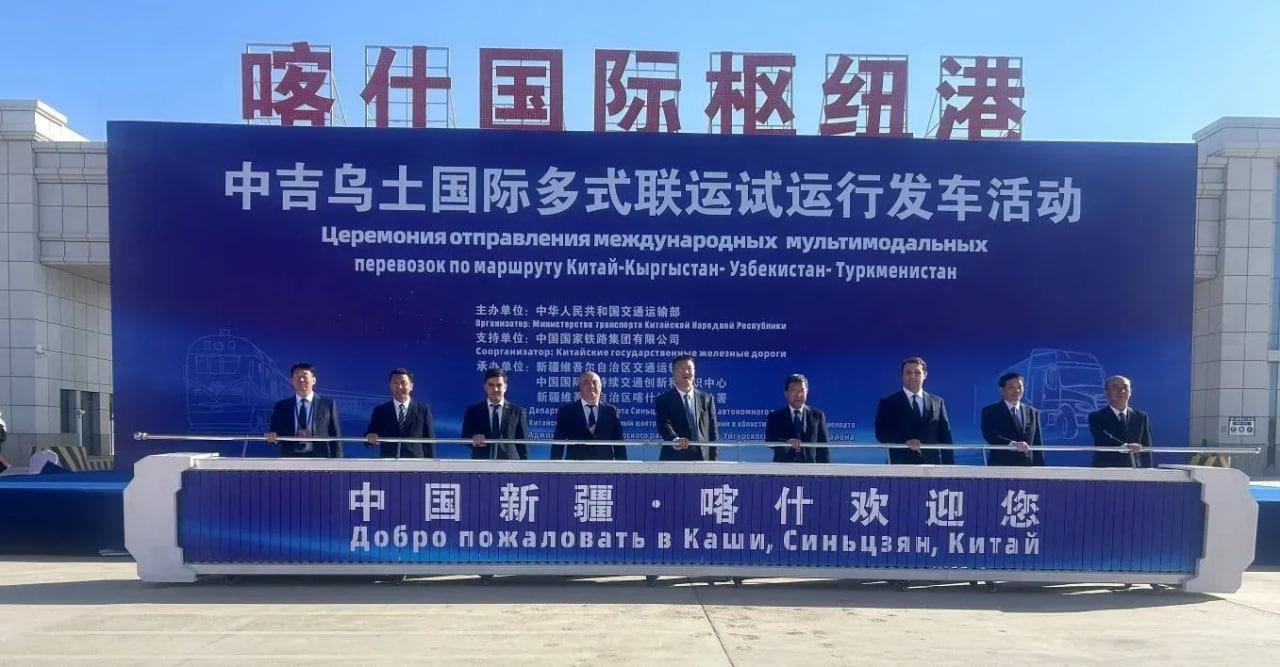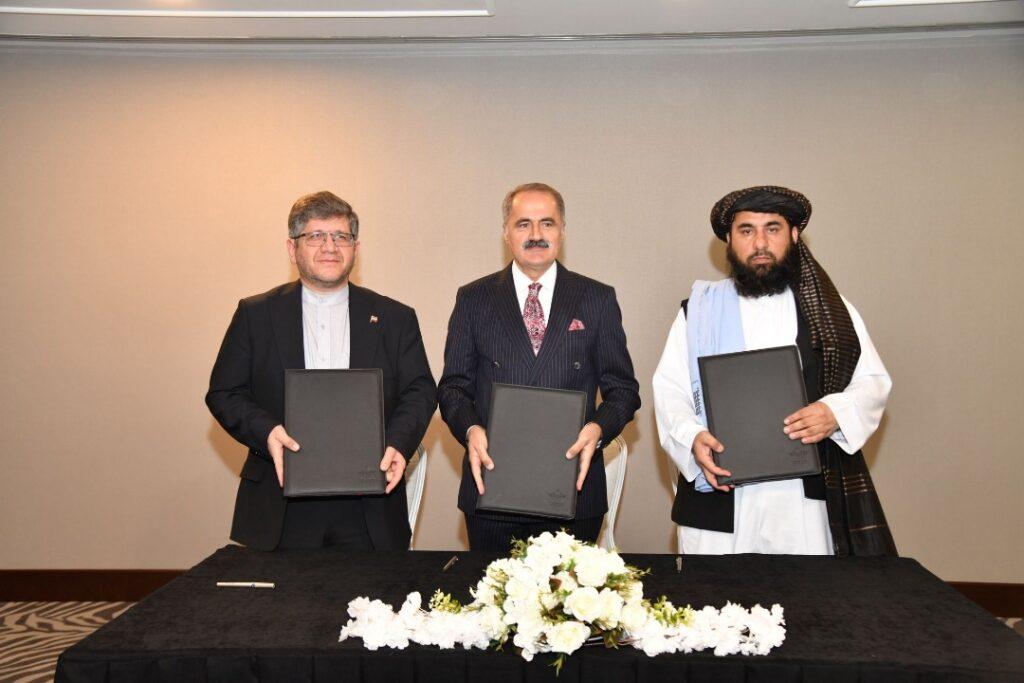
A New, Greater Impulse In Italian-Kazakh Relations
A New, Greater Impulse In Italian-Kazakh Relations
Kazakhstan and Italy are developing a major strategic partnership that is rapidly altering ties between the two countries. For Italy, one of the main and constant aims of Italian foreign policy – regardless of the political orientation of its government – is to guarantee the stability of its energy supplies. Italy imports about 85 percent of its energy. This need explains, in part, the cool reaction of the Italian government toward a military intervention in Libya (I-Italy.Org, February 25). It also explains the importance of ENI, the country’s largest natural gas and oil company, in Italy’s foreign relations strategy. The company, even though it cannot be considered an independent actor, enjoys larger degrees of autonomy in pursuing its strategies worldwide. As a major importer of energy, Italy is in a near constant search to strengthen its ties with countries that can serve as reliable sources of stable and relatively convenient energy supplies. Its relationship with Russia, however, has fallen under scrutiny, given the publication of some diplomatic cables by WikiLeaks concerning Rome’s relations with Moscow (Corriere della Sera, Nov 29, 2010). Less known and analyzed, however, is the strong relationship that exists between Italy and Kazakhstan, which has received greater impulse during the past several months.
During the latest meeting of the Kazakh-Italian intergovernmental working group for industrial and economic cooperation and exchange, Timur Suleimenov, Vice Minister of Economic Development and Trade, said that Italy has become the “main strategic partner of Kazakhstan in Europe” (Gazeta.kz, May 27). On this occasion, it has been noted that trade between the two partners has increased by 30 percent year on year in 2010 and that Italy is one of the biggest European investors in Kazakhstan (KazInform, May 27).
Recently, the Italian Defense Ministry has also opened a Defense Attaché Office under the Embassy of Italy in Astana, a move that will also boost political and strategic ties (KazInform, May 26). These developments have followed the Kazakh Senate’s ratification of the treaty on strategic partnership, which was agreed to by President Nursultan Nazarbayev and Italian Prime Minister, head of a centre-right government, Silvio Berlusconi in 2009 (Tengri News, March 31). This was the latest bilateral meeting between the two countries and a very important diplomatic step toward strengthening their cooperation.
In December 2010, the Italian Prime Minister flew to Astana to attend the Organization for Security and Cooperation in Europe (OSCE) summit organized by Kazakhstan, which held the presidency of the organization that year. During the meeting, Berlusconi took the floor to express his deepest admiration for the Kazakh President, stating that “polls made by an independent authority assigned Nazarbayev 92 percent of respect and love from Kazakh people” and that such a consensus can be explained as based “on nothing but facts” (Rai News 24, December 2, 2010). At first glance, such words can at best sound eccentric, especially considering the persistent remarks of the international community toward Kazakhstan’s standards of democracy, human rights and freedom of speech. Yet, Berlusconi’s remarks can be explained by the massive geopolitical and energy interests Italy has in Kazakhstan. For example, ENI is a major player in the development of the Kachargan and Kashagan oil fields in Kazakhstan (https://www.eni.com/it_IT/eni-nel-mondo/kazakhstan/attivita-eni/attivita-eni.shtml).
ENI faced several significant obstacles to developing Kashagan. In late 2010, ENI subsidiary Agip Kazakhstan North Caspian Operating Company (Agip KCO) was accused of $110 million in fraud in alleged overcharges associated with the construction of the Bolashakin oil installation in the Kashagan project (Sole 24 Ore, November 19, 2010). ENI denied the allegations, stating that such an investigation started already in 2007 and that Kazakh authorities did not provide any further details since then. Likely, some more immediate political interests lurked behind this legal issue, such as the fate of 19,000 employees. Largely Kazakh citizens, these employees’ contracts were to be terminated as the first phase of the construction was nearing its completion and the ongoing negotiations to start the second phase of the development of Kashagan field progressed. This is only the latest example of the troubles ENI currently faces in Kazakhstan. Several other times in the past, ENI was on a collision course with Kazakh authorities. In 2007, for example, the Italian prime minister at that time – head of a center-left coalition – Romano Prodi, had to meet with Nazarbayev in order to solve the dispute sparked by allegations concerning ENI activities in the country. The Italian company was accused of disrespecting Kazakh norms of environmental protection (Corriere della Sera, 8 October, 2007). This dispute ended with the re-negotiation of the Kashagan project agreement whereby ENI ended up selling part of its stakes – 8.4 percent – to the national Kazakh Company Kazmunaigaz and lost its role as sole leader of the consortium (Sole 24 Ore, January 14, 2008). In 2009, the company signed additional contracts concerning the development of the fields of Isatay and Shagala, as well as the Pavlodar refinery. The CEO of ENI, Paolo Scaroni, used very optimistic words to describe this result, saying that “that is a wide agreement and a large part of Kazakh oil and gas could come under our influence” (Sole 24 Ore, November 6, 2009). This mix of positive developments and harsh blows represents a consistent record for ENI in the country.
Kashagan is a very critical project not only for Italy, but for ENI as well. In May 2011, during a meeting with Nazarbayev, Paolo Scaroni assured that the first oil is expected in December 2012 or two to three months later than that (Tengri News, May 18). In the past few weeks, however, several problems have arisen and there is a serious risk of further delays. The second phase of the project will be headed by Shell, which will replace ENI as leading company of the project. The Kazakh government has rejected a new lower-cost design for this second phase. Karim Massimov, Kazakhstan’s prime minister, clearly told the Financial Times that the issue with the consortium developing the field is about costs (Financial Times, May 22). As a result, Shell has decided to shut its offices in Aktau (Tengri News, May 31).
As previously mentioned, ENI’s repeated disputes with Kazakhstan over the development of the field represent “normality,” and they have caused constant delays and problems. Production has not started yet, and some members of the consortium, such as ExxonMobil, are tempted to bail out of this project. This would also be a very worrisome development for the other companies involved. Yet, given Kazakhstan’s ambitious economic growth goals and the need to increase its oil output, it is likely that Kazakh authorities will try to meet part of the requirements of the consortium to avoid a major blow to these development projects (Milano Finanza, May 26).
Over the coming years, Kazakhstan will represent a growing geopolitical interest for Italy. In general, Italy will try to deepen its presence among the CIS energy producers, since the countries of this area are considered less volatile than the Mediterranean producers. As noted above, improving its relationship with Kazakhstan has been a consistent element of Italian foreign policy, regardless of the political orientation of Italian governments. ENI, even though it suffered some blows to its activities in the country, will still represent a key player in this relationship. Astana, as well, has an interest in increasing its relationship with Rome. Italy is now considered the main strategic partner within the European Union. Kazakhstan needs to increase its oil exports to get cash to boost and diversify its economy, as well as to increase its international status. Even though Astana is also diversifying its foreign policy by boosting its relationship with China, the European link will remain fundamental, and Italy will play a major role within this context.


